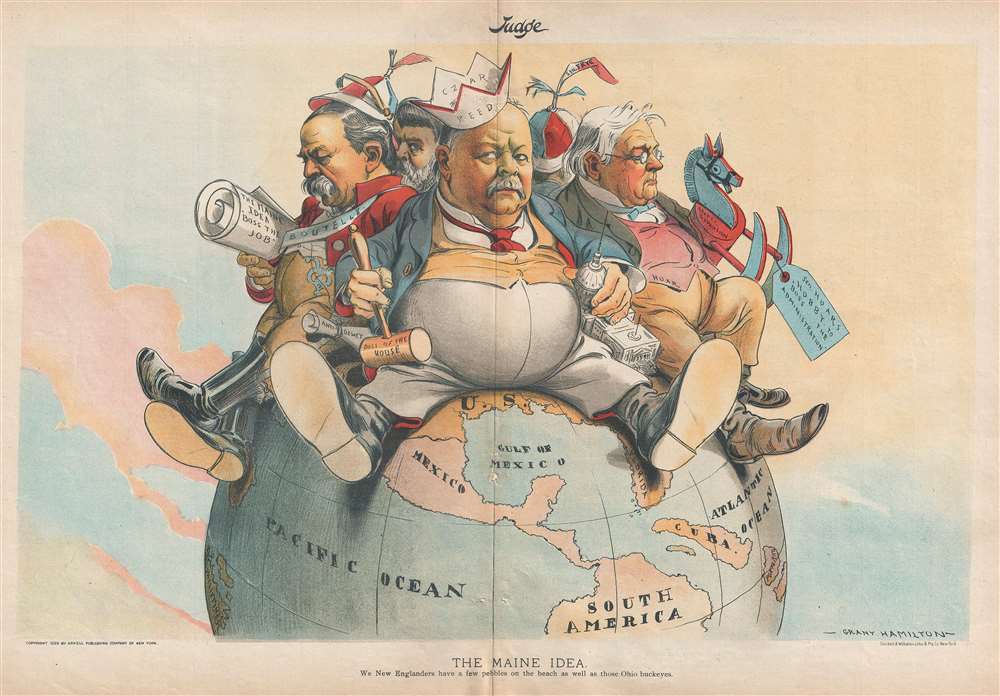This item has been sold, but you can get on the Waitlist to be notified if another example becomes available, or purchase a digital scan.
1899 Hamilton Political Cartoon Lampooning Isolationist New England Congressmen
MaineIdea-hamilton-1899
Title
1899 (dated) 12.75 x 18.25 in (32.385 x 46.355 cm)
Description
A Look at the Four Identified Congressmen
Each of these men opposed American involvement in the Spanish-American war and American expansionism for their own reasons. Representative Reed, sometimes ridiculed as Czar Reed, held the position of Speaker of the House of Representatives two separate times, from 1889 - 1891 and from 1895 - 1899. Reed had supported President McKinley's efforts to avoid war with Spain, but when McKinley changed his position to supporting the war, Reed refused to change his position. He opposed the President and, having lost the battle, resigned from both the speakership and his seat in Congress.It is not entirely clear why Representative Boutelle opposed the war, but, from what Hamilton wrote in this cartoon, it may have been out of loyalty to Speaker Reed. The phrase 'Boss the Job' most likely refers to Reed, who Hamilton refers to as the 'Boss of the House'. Hamilton also has a paper tied to Boutelle that reads 'Anti-Dewey', the Navy Admiral who had won the decisive battle in Manila Bay and was now talked about as a possible front-runner for the presidency. This opposition to Dewey may also be why Boutelle is included here.
Senator Hoar, however, was radically anti-expansion (as is written here on his 'hobby horse'), even to the extent that he met with native Hawaiians who opposed the annexation of Hawaii before that vote in the Senate.
It is also unclear why Senator Frye is included in this cartoon, as he was a member of the American delegation that went to Paris to negotiate the treaty that ended the Spanish-American War. Perhaps he also is included because of his association with Reed, but history has hidden the exact reason.
This cartoon was drawn by Grant Hamilton and published in the Mach 25, 1899 issue of Judge.
Cartographer
Grant E. Hamilton (1862 - 1926) was an American artist, illustrator, and political cartoonist. Born in Youngstown, Ohio, Hamilton eventually became the art editor for Judge, a position he held for over twenty years. He is remembered as ab influential political cartoonist and was the creator of the 'full dinner pail' campaign slogan used by President McKinley in the 1896 Presidential Election when he was running against William Jennings Bryan. Hamilton also held the position of chief of the government art bureau during World War I. More by this mapmaker...

